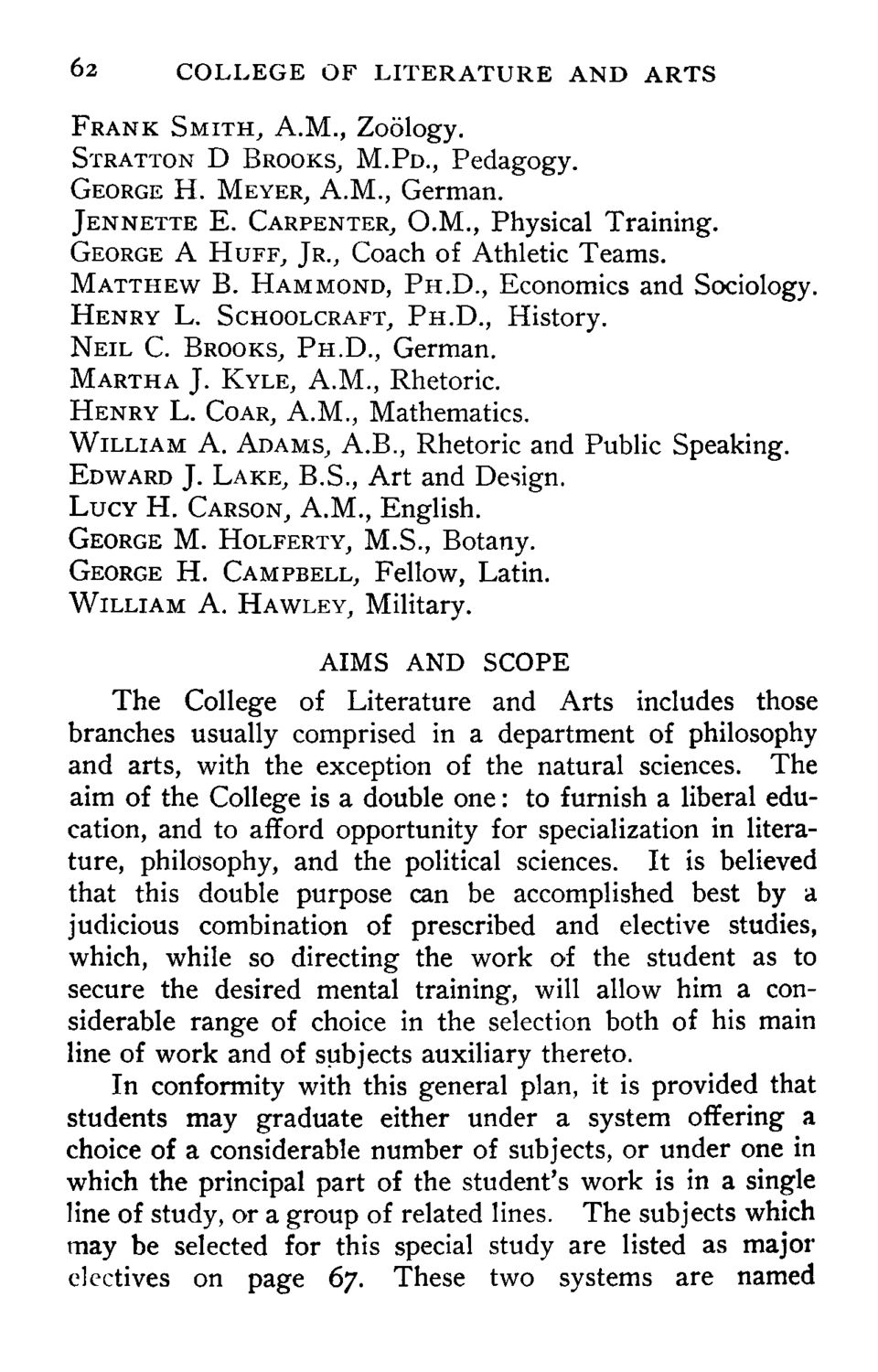| |
| |
Caption: Course Catalog - 1899-1900
This is a reduced-resolution page image for fast online browsing.

EXTRACTED TEXT FROM PAGE:
62 COLLEGE OF LITERATURE AND ARTS FRANK S M I T H , A.M., Zoology. STRATTON D BROOKS, M . P D . , Pedagogy. GEORGE H. MEYER, A.M., German. JENNETTE E. CARPENTER, O.M., Physical Training. GEORGE A H U F F , JR., Coach of Athletic Teams. MATTHEW B. HAMMOND, P H . D . , Economics and HENRY L. SCHOOLCRAFT, P H . D . , History. N E I L C. BROOKS, P H . D . , German. Sociology. MARTHA J. KYLE, A.M., Rhetoric. HENRY L. COAR, A.M., Mathematics. WILLIAM A. ADAMS, A.B., Rhetoric and Public Speaking. EDWARD J. LAKE, B.S., Art and Design. LUCY H. CARSON, A.M., English. GEORGE GEORGE M. HOLFERTY, M.S., Botany. H. CAMPBELL, Fellow, Latin. WILLIAM A. HAWLEY, Military. AIMS AND SCOPE The College of Literature and Arts includes those branches usually comprised in a department of philosophy and arts, with the exception of the natural sciences. The aim of the College is a double one: to furnish a liberal education, and to afford opportunity for specialization in literature, philosophy, and the political sciences. It is believed that this double purpose can be accomplished best by a judicious combination of prescribed and elective studies, which, while so directing the work of the student as to secure the desired mental training, will allow him a considerable range of choice in the selection both of his main line of work and of subjects auxiliary thereto. In conformity with this general plan, it is provided that students may graduate either under a system offering a choice of a considerable number of subjects, or under one in which the principal part of the student's work is in a single line of study, or a group of related lines. The subjects which may be selected for this special study are listed as major electives on page 67. These two systems are named
| |